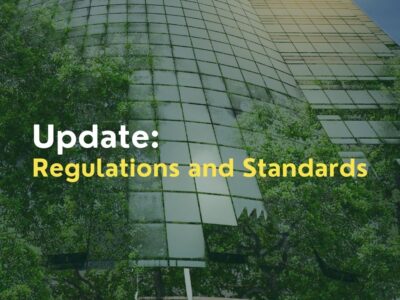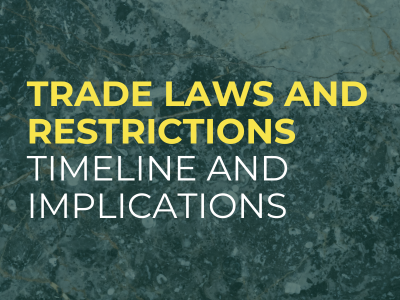
Regulations and Standards Update
ISO/PC 348: Sustainable Raw Material Management in Minerals and Metals Supply Chains
ISO, the International Organisation for Standardisation recently published a paper as part of ISO International Workshop Agreement (IWA) 45 on existing sustainability frameworks for critical minerals supply chains.
This paper provides a set of non-binding recommendations to inform a new standard on sustainable raw material management in minerals and metals supply chains – ISO/PC 348, which will be considered a new baseline for regulating raw material supply chains and the industries that drive them.
The paper recognises that there are many existing sustainability frameworks, including guidance and standards, in the upstream and midstream supply chains. IWA 45 has therefore determined that the creation of a new ISO standard in these supply chains is not required. It highlights however that there are gaps in existing frameworks for the downstream aspects of these supply chains, including embedding minerals circularity, traceability and labelling criteria. It recommends that focus should be placed in these parts of the supply chain.
Proposal to delay implementation of the EU Deforestation Regulation
The EU Parliament will vote in its plenary session on November 13-14 on whether to approve the European Commission’s proposal to postpone implementation of the EU Deforestation Regulation by one year. Under the EUDR any operator or trader who places key deforestation linked commodities on the EU market, or exports from it, must be able to prove that the products do not originate from recently deforested land, or have contributed to forest degradation.
The European Council has proposed this postponement to allow countries, member states, operators and traders to be fully prepared in their due diligence obligations. Under the new timeline, the EUDR will be applicable on 30 December 2025 for large companies, and on 30 June 2026 for micro- and small enterprises.
Regardless of whether the delay is approved, the EUDR will impact thousands of companies of all sizes across the world. Speak to TDi to discuss how we can help your business get ready for the regulation – including putting in place due diligence systems that ensure you meet its requirements for supplier mapping, data collection, monitoring and reporting. We can also advise on cross-compatibility with other regulations and standards.
Find out more in our guidebook on the EUDR and recent webinar.



